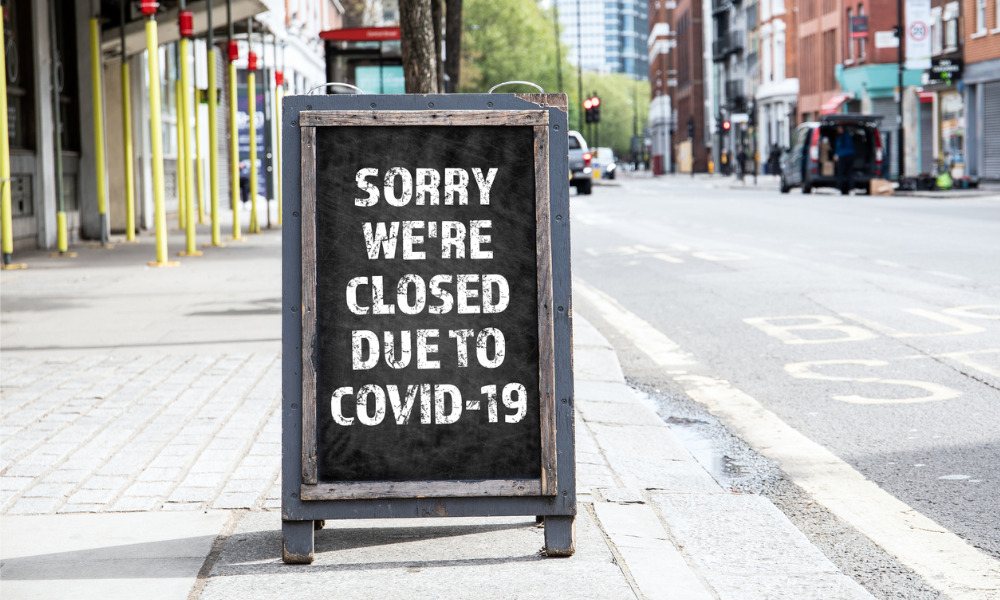With the COVID-19 pandemic slowdown, what options do employers have?

In looking at their options, employers — and legal experts — may be confused about how a frustration of contract works. Howard Levitt, senior partner at Levitt Employment and Labour Law in Toronto, provides some clarity.
Q: How might a frustration of contract be involved during the pandemic?
A: A short-term layoff has never been a frustrating event because of lack of work, nor has having no business been cause for discharge or frustration of contract. Where frustration comes into the current crisis is where the government says, ‘You are to shut down for two weeks and you're not essential’… that is a frustrating event; it doesn't create frustration for the purpose of termination. Because, at some point, they'll prospectively reopen, but it does create frustration for a layoff for the period of the order.
It doesn't matter how bad business is for [employers], if the government hasn't ordered them closed, they cannot argue frustration… the frustration ends the second the government order ends.
People talk about force majeure; force majeure is a contractual contract term— it's got nothing to do with common law entitlements. We're talking about frustration, not force majeure. A lot of lawyers are referring to it incorrectly and so are people. It's the same thing but it's frustration in a common law sense and force majeure in a written contractual term, a force majeure clause in the contract. And, of course, you don't need a force majeure clause to have frustration of contract which is by operation of law, but frustration has to be the impossibility of performance, not just difficulty of performance.
Q: When might a wrongful dismissal be involved?
A: Let's take a restaurant, let's assume they're ordered closed and let's assume that on May 30, [the government] orders them to open. If [the employer doesn’t] call [workers] back right away, the frustration no longer operates, and that's a wrongful dismissal. But, until then, it's a frustrating event.
It's only the non-union employees where it triggers a constructive dismissal. Unionized employees can be laid off. That is one of the one of the major disadvantages — and people are feeling it — of being unionized.
Q: Aside from a major event such as a fire or flooding, when might a frustrated contract be considered?
A: Where I find it in my practice, historically, is when somebody is physically disabled or psychiatrically disabled for such a long period and their return is so distant, it's unforeseeable. That is frustrating events. Say they're away sick for two or three years, and you get a doctor's note saying, ‘We don't know if they're ever going to recover’ — that's frustration. They can then be fired with minimum ESA [Employment Standards Act] entitlement.
The employee could say, ‘We've been frustrated’ and try and trigger a termination. It doesn't happen very often, but they could. What happens is they understand they're never going to come back to work... and they want to get some severance pay, at least a minimum under the ESA if it's a severance-paying employer. If they've been there a long time, that could be up to 34 weeks’ pay.
They still get their LTD [long-term disability]. It's a win-win for the employee.
Q: Why would the employer accept the employee’s request for a frustration of contract?
A: Because they're afraid [the employee is] going to come back one day, and severance is minimal. Let's say they're not a severance-paying employer, the employee’s under five years. [Employers] don't want to hit the five-year mark where they suddenly pay severance too. So, a four-year employee, they are not coming back and foreseeably they've been gone for a year-and-a-half, two years, so [employers] terminate, allege frustration and only pay them three or four weeks under the employment standards act. And that's it, they never have to worry about them coming back and then having the pain of wrongful dismissal damages. Especially if the employee’s troublesome, or they don't have work anymore.
Q: How is a frustration of contract carried out?
A: They terminate them for frustration, and they pay them nothing. You only pay ESA minimums in a frustration caused by disability, not any other frustration. But again, it's a frustration only if the government orders a shutdown and, therefore, they can't sue for wrongful dismissal because it's government ordered.
Expert answers to other pandemic-related employment law questions can be found in this post looking at temporary layoffs and this one answering key questions during the pandemic.




